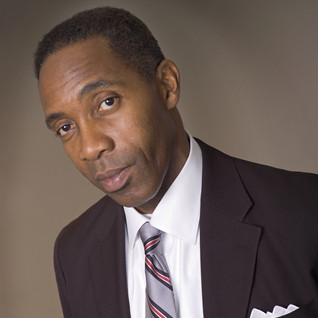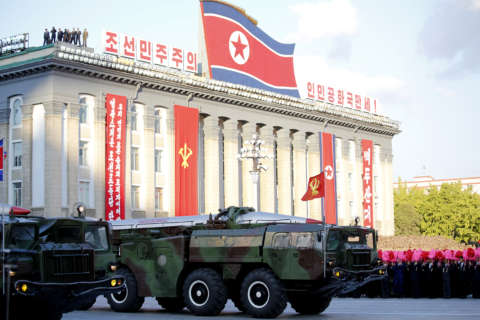WASHINGTON — The Trump administration has delivered an unmistakably harsh message to Russian President Vladimir Putin, signaling that a brief period of détente is over and that difficult days lie ahead.
On April 11, three senior White House officials, diplomatically, called Putin a liar while presenting declassified evidence disputing his claim that the Syrian regime did not launch a devastating chemical weapons attack on April 4 in Khan Shaykhun, Syria.
At 6:30 a.m. local time, before children and parents could leave for school or work, U.S. intelligence assets detected a rocket attack and airstrike, followed by witness accounts of a strange odor and visible symptoms of what turned out to be Sarin nerve agent poisoning.
At least 75 people died, and more than 575 were injured.
Speaking on background to reporters, the officials squarely blamed the Syrian military for the attack, while allowing questions about possible Russian complicity to propagate.
Considering the fact that Russian forces are embedded in many Syrian regime locations around the country, one White House official said rhetorically, “We do think that it is worth asking the Russians how is it possible that their forces were collocated with the Syrian forces that planned and carried out the attack at the same installation, and not have foreknowledge.”
But the narrative woven by the Syrian regime and the Putin government is completely different.
“The Russians said that this was a regime attack against a munitions depot, and that terrorists had been holding chemicals munitions that exploded after being attacked,” one of the White House officials said.
But the Trump administration officials went to great lengths to forcefully push back on the alternative narrative driven by Putin and the Syrian government.
“What we’ve done is declassified a lot of intelligence, thanks to our colleagues in the intelligence community, so we can be very forthcoming about the amount that we know about this attack and why we believe the Russian and Syrian narratives are false,” said a White House official.
That declassified intelligence and other sources of information have confirmed that no terror groups, including ISIS, have access to sarin.
Despite the mounting and damaging evidence, including U.S. intelligence intercepts that allegedly caught Syrian military officials conferring with chemical weapons experts before the attack, Syrian President Bashar al Assad and Putin continue to deny the attack happened.
Assad claimed on April 13 that the chemical attack was “a 100 percent fabrication.”
In an interview with Agence France-Presse, Assad said: “Our impression is that the West, mainly the United States, is hand-in-glove with the terrorists. They fabricated the whole story in order to have a pretext for the attack.”
One White House official said Russian and Syrian leaders “have dismissed the allegations of a chemical weapons attack as ‘a prank of a provocative nature.’ We don’t think that’s remotely possible.”
The attack, it was revealed in the briefing, was carried out by SU-22 fixed-wing aircraft that left the Shayrat airfield in southwestern Syria on the same morning of the attack in Khan Shaykhun.
Additionally, one White House official said, “We have information that personnel historically associated with the [Syrian] chemical weapons program were at Shayrat airfield in late March preparing for this attack, and on the day of the attack they were again present at that airfield.”
The great lengths that the Russian and Syrian officials have gone to deny the events of that day appear to be centered on completely different motives.
Syrian observers say Assad’s denial is generated by genuine fear of what will happen to him and his family if his government crumbles. But Dr. Christopher Paul, senior social scientist at the Rand Corporation, said Putin’s actions are driven by a Russian propaganda strategy that does not value truth.
“One of the things I found most startling when I first started looking into Russian propaganda is its lack of commitment to objective reality — its willingness to say anything and to make up information and evidence,” said Paul.
His research suggests that the Russian government’s meticulously crafted campaign to attack the U.S. election — using bogus news outlets, shady hacking organizations, spies and troll houses — are all based on the same disregard for truth.
“I’ve seen nothing to suggest that the Russians have an affinity for the truth,” said Virginia Sen. Mark Warner, vice chairman of the Senate Intelligence Committee.
Not only was Warner referring to the historical tactics employed by the Soviet Union and later Russia during the Cold War, but he said, “We’ve seen that tactic as recently as the last few days where the Russians denied that the Syrians used chemical weapons inside Syria. ”
Warner and his colleagues on the committee are deeply involved in a historic investigation into what’s been called an “active measures” campaign, used by the Russian government, which the committee believes was also rooted in dishonesty.
“Active measures” is a Soviet term for the actions of political warfare conducted by the Soviet and Russian security services to influence the course of world events.
The operation allegedly hacked the email accounts of U.S. politicians, institutions and private citizens and passed the information on to organizations such as WikiLeaks.
Russia is also accused of creating and supporting hundreds of fake news sites that popped up around the world to churn out false narratives about the U.S. government, the military and select prominent Americans. The objective, according Warner, was to interfere with the U.S. presidential election.
“We have seen in the 2016 election an unprecedented attempt by Russia to manipulate our most basic democratic process — the electoral process,” Warner said.
Russia, even when it was the Soviet Union, according to Warner, “was a longtime agent of misinformation.”
“When it was a communist dictatorship, it used propaganda to contain its own people,” he said. “Many of the tactics that Russia used in 2016 America were used the last decade in places like Poland, Hungary, Romania, Estonia, Latvia and Lithuania.”
The common denominator in all of the campaigns has been the distribution of falsehoods disguised as truth.
Paul said the so-called “truth decay” — a term Rand Corporation President Michael Rich has used to refer to the Russian government’s lack of value for reality and fact — presents a worrisome problem for the Trump administration.
Both President Donald Trump and Putin have lamented the decline of U.S. relations since the chemical attack, which could escalate the gritty and dangerous intelligence and military activities going on in the shadows between the two countries.
During a White House news conference alongside NATO Secretary-General Jens Stoltenberg on April 13, Trump said: “It would be wonderful … if NATO and our country could get along with Russia. Right now, we’re not getting along with Russia at all. We may be at an all-time low in terms of that relationship with Russia.”
On the same day, during a visit by Secretary of State Rex Tillerson, Putin, clearly angered by the U.S. accusations, said U.S.-Russian relations had worsened.
“The level of trust on a working level, especially on the military level, has not improved but has rather deteriorated,” Putin said.
Paul indicated the degradation could touch off an extended period of dangerous geopolitical chess moves. And he warned that the U.S. needs to make sure it’s prepared.
“Remember,” he said, “that Russia is a nation of chess players. There are two critical aspects of chess. One is thinking tens if not dozens of moves ahead, and planning meticulously the way things unfold. The other is opportunism, because chess is a two-person game. And if your opponent makes a mistake, you can opportunistically exploit that.”







